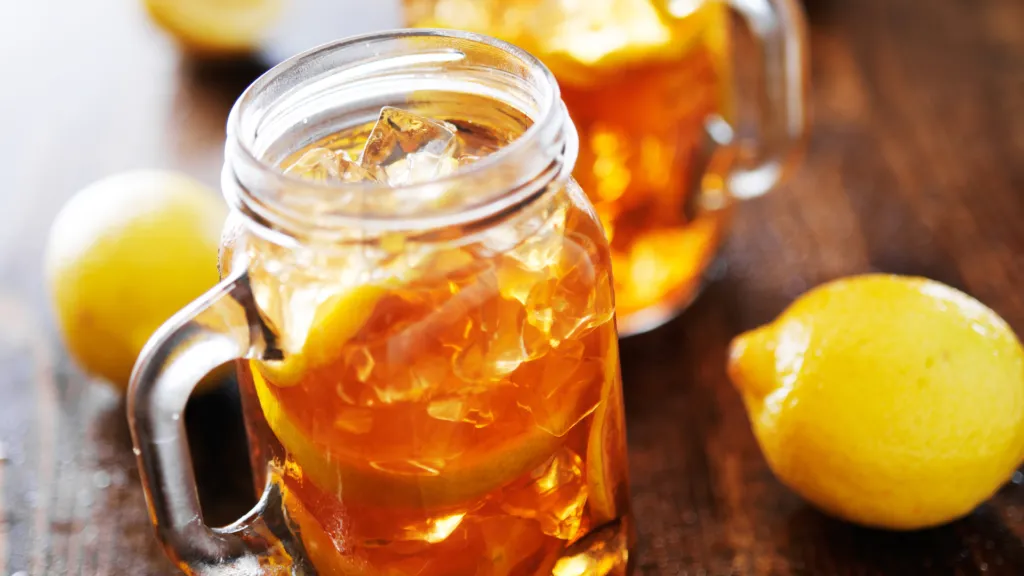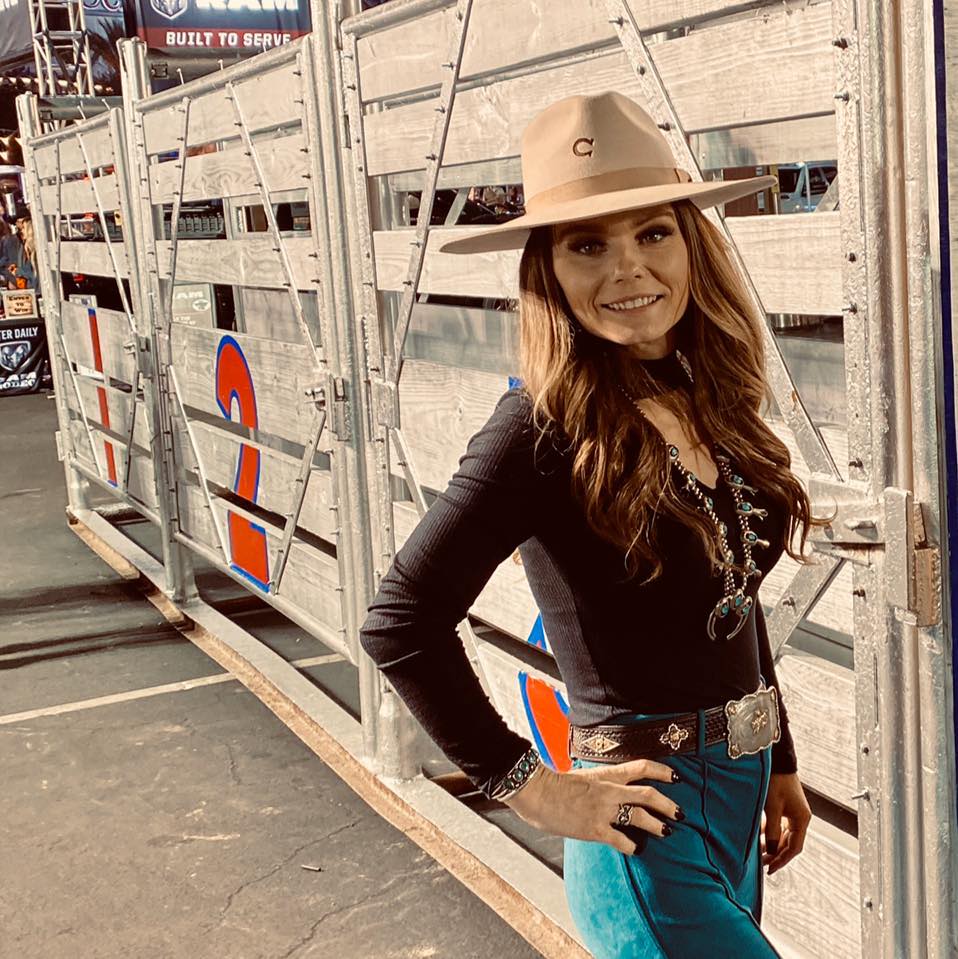Sweet tea, a hallmark of Southern cuisine and hospitality, offers a refreshing and sugary flavor profile. However, it’s important to be aware that Does Sweet Tea Have Caffeine?
Due to disruptions in tea imports during World War II, most sweet tea is now brewed using black tea, which naturally carries a caffeine content. In this article, we’ll delve into the typical caffeine levels found in sweet tea, discuss how it varies based on preparation, and compare it to other commonly consumed caffeinated drinks.
Importance of Knowing About Sweet Tea
Sweet tea is widely consumed in the southern United States and is gaining popularity in other regions and countries. It is often served as a refreshing beverage during hot summer months and at social gatherings.
Black tea, the base ingredient in sweet tea, contains antioxidants like polyphenols and flavonoids, which may offer potential health benefits such as improved heart health, reduced risk of certain cancers, and enhanced immune function. These benefits make sweet tea an appealing choice for a wide range of consumers.
However, it is crucial to be aware of the caffeine content in sweet tea, as it can vary depending on factors such as the type of tea used, brewing time, and serving size.
This caffeine content can have different effects on various individuals, and certain groups should limit or avoid sweet tea consumption.
Pregnant and breastfeeding women should consult their healthcare provider regarding safe caffeine intake levels. Individuals sensitive to caffeine or with certain medical conditions, such as anxiety disorders, insomnia, or high blood pressure, should monitor their sweet tea consumption.
Children and adolescents should also limit their intake of caffeinated beverages, including sweet tea, to avoid potential side effects like sleep disruption and increased anxiety.
Does Sweet Tea Have Caffeine Free?
No, sweet tea is generally NOT caffeine-free. The caffeine content in sweet tea can vary depending on its preparation but typically ranges from 30-60 milligrams per 8-ounce serving, which is considerably less than a similarly sized cup of coffee that can contain between 95 to 200 milligrams of caffeine.
Black tea, the most common type used in making sweet tea, contains about 40-70 milligrams of caffeine per 8-ounce serving when brewed for three minutes. The caffeine content can increase with longer brewing times.
Factors like the tea brand and water temperature used in brewing can also affect caffeine levels. Moreover, some commercially prepared sweet teas may contain added caffeine, making it important to check product labels if you’re monitoring your caffeine intake.
When compared with other caffeinated beverages, sweet tea falls in the lower to moderate range of caffeine content. For instance, a 16-ounce serving of sweet tea contains about 41 milligrams of caffeine, which is less than many other drinks, such as coffee or energy drinks.
Home-brewed sweet tea typically contains 2.56 milligrams of caffeine per fluid ounce, whereas brands like McDonald’s and Chick Fil A have slightly higher caffeine contents per fluid ounce in their sweet tea offerings.
If you’re looking to avoid caffeine entirely, herbal teas are a good option as they naturally contain no caffeine. Unlike teas made from the Camellia sinensis plant (black, green, white, and oolong teas), which all contain caffeine, herbal teas are made from a variety of other plants, fruits, or herbs and are caffeine-free.
Some popular caffeine-free herbal teas include chamomile, peppermint, ginger, and rooibos, among others. However, it’s important to read labels carefully, as some “teas” might have added caffeine.
List of Ingredients in Sweet Tea

The ingredients in sweet tea can vary depending on the recipe or brand, but here is a list of the most common ingredients found in traditional homemade or store-bought sweet tea:
- Water: The base liquid for brewing the tea.
- Black tea leaves or tea bags: The primary ingredient that gives sweet tea its distinctive flavor and caffeine content. Common tea varieties used include Ceylon, Assam, or a blend of black teas.
- Sugar: Granulated white sugar is the most common sweetener used in sweet tea. The amount of sugar can vary greatly depending on personal preference or regional traditions.
- Ice: Sweet tea is often served over ice to provide a refreshing and chilled beverage.
Some variations or additional ingredients that may be found in certain sweet tea recipes or products include:
- Lemon juice or slices: Added for a citrusy twist and to balance the sweetness.
- Mint leaves: Occasionally used to add a fresh, cool flavor to the tea.
- Honey: Sometimes used as an alternative natural sweetener to sugar.
- Artificial sweeteners: Some brands or recipes may use sugar substitutes to reduce the calorie content.
- Flavoring syrups or extracts: Added to create flavored sweet tea variations, such as peach, raspberry, or vanilla.
- Preservatives: Some commercially produced sweet teas may contain preservatives to extend shelf life.
It’s important to note that the specific ingredients and their proportions can differ based on the source of the sweet tea, ranging from homemade recipes to commercial brands. When purchasing pre-made sweet tea, it’s always a good idea to check the label for a complete list of ingredients, especially for those with dietary restrictions or allergies.
Sweet Tea Nutritional Information
Sweet tea contains 80 calories, primarily derived from its high sugar content (20 grams per serving). The drink has no fat, cholesterol, or dietary fiber. Sweet tea also provides negligible amounts of sodium, vitamins, and minerals. One important point to note is that sweet tea, made with black tea, contains caffeine – about 47.5mg per cup.
| Nutrition Facts | Amount per serving |
| Serving Size | 1 cup (257 grams) |
| Calories | 80 |
| Total Fat | 0 grams (0% DV) |
| Saturated Fat | 0 grams (0% DV) |
| Trans Fat | 0 grams |
| Polyunsaturated Fat | 0 grams |
| Monounsaturated Fat | 0 grams |
| Cholesterol | 0 milligrams (0% DV) |
| Sodium | 0.2 milligrams (0% DV) |
| Total Carbohydrates | 21 grams (8% DV) |
| Dietary Fiber | 0 grams (0% DV) |
| Sugars | 20 grams |
| Protein | 0 grams |
| Vitamin D | 0 mcg (0% DV) |
| Calcium | 0.2 milligrams (0% DV) |
| Iron | 0 milligrams (0% DV) |
| Potassium | 50.2 milligrams (1% DV) |
| Caffeine | 47.5 mg |
Sweet Tea Variants and Their Caffeine Content

Sweet tea, while traditionally made with black tea and sugar, has evolved to include various flavors and adaptations to cater to different tastes and preferences. Here are some popular sweet tea variants:
Lemon Sweet Tea
This variant includes the addition of lemon juice or lemon slices to the classic sweet tea recipe, providing a refreshing citrusy twist.
Peach Sweet Tea
Peach syrup or nectar is added to the sweet tea, giving it a fruity and slightly tart flavor. This variant is particularly popular in the southern United States.
Raspberry Sweet Tea
Similar to peach sweet tea, raspberry syrup or puree is added to the tea for a sweet and tangy flavor profile.
Mint Sweet Tea
Fresh mint leaves are added to the tea during the brewing process or as a garnish, providing a cool and refreshing taste.
Arnold Palmer
Named after the famous golfer, this drink combines equal parts of sweet tea and lemonade, resulting in a balance of sweet and tart flavors.
Green Tea Sweet Tea
Instead of using black tea, this variant is made with green tea leaves, offering a lighter flavor and potential health benefits associated with green tea.
Decaffeinated Sweet Tea
For those looking to reduce their caffeine intake, decaffeinated black tea is used as a base for this variant.
Unsweetened Sweet Tea
While technically not a variant, some people prefer to drink their tea without any added sweeteners, enjoying the natural flavor of the black tea.
Half and Half Sweet Tea
This version combines equal parts of sweet tea and unsweetened tea, allowing for a more balanced sweetness level.
Long Island Sweet Tea
Inspired by the Long Island Iced Tea cocktail, this adult version includes the addition of various spirits such as vodka, rum, and tequila, turning it into an alcoholic beverage.
Alternatives To Sweet Tea and Their Caffeine Content
If you’re exploring alternatives to sweet tea, considering the caffeine content is important, especially if you’re looking to either reduce or manage your caffeine intake. Here are some tea alternatives and their caffeine content:
Green Tea
Offers a slightly lower caffeine content than black tea, typically around 28 mg per 8 oz serving. It’s known for its health benefits and has a variety of types, each with distinct flavors and aromas.
Oolong Tea
This semi-fermented tea has a caffeine content similar to green tea but can vary based on the specific variety and processing methods. Oolong offers unique flavors ranging from light floral to full-bodied and rich.
White Tea
Undergoes very little processing and generally has a subtle floral taste. While it’s often believed to contain less caffeine than green tea, some studies suggest that white tea may actually have more caffeine. However, the exact content can vary widely depending on the type and brewing method.
Pu’er Tea
Originating from China, this tea comes in raw and aged varieties, with its caffeine content depending on the aging process. Pu’er tea has a unique flavor profile that can resemble green tea (for raw Pu’er) or take on the deeper, richer tones of black teas (for aged Pu’er).
Herbal Teas
For a caffeine-free alternative, herbal teas are a great option. Herbal Teas come in various flavors, including rooibos, chamomile, peppermint, and more, offering health benefits without the caffeine.
Decaffeinated Teas
If you enjoy the taste of tea but want to avoid caffeine, decaffeinated versions of black, green, and oolong teas are available. These typically contain only 1-2 mg of caffeine per 8 oz serving.
| Beverage | Caffeine Content |
| Green Tea | 30 to 50 mg per 8-ounce serving |
| Oolong Tea | 10 to 60 mg per 8-ounce serving |
| White Tea | 6 to 55 mg per 250 ml serving |
| Pu’er Tea | 15 to 60 mg per 8-ounce serving |
| Herbal Teas | Caffeine-free |
| Decaffeinated Teas | 1 to 2 mg per 8-ounce serving |
Read Also:
Recommended Daily Intake of Sweet Tea
Sweet tea’s caffeine level fluctuates based on a number of variables, including the tea’s variety and brewing technique. An 8 oz serving of sweet tea typically has between 30 to 60 mg of caffeine.
Individual characteristics like age, weight, and caffeine sensitivity affect the recommended daily intake (RDI) of caffeine. However, up to 400 mg of caffeine per day is thought to be safe and usually has no negative effects for the majority of healthy adults.
Given that an 8 oz serving of sweet tea contains around 30 to 60 mg of caffeine, it falls well within the recommended daily intake for caffeine. Therefore, enjoying a moderate amount of sweet tea as part of a balanced diet is unlikely to exceed the recommended daily caffeine intake for most individuals.
Conclusion
Whether sweet tea has caffeine depends on preparation. Does Sweet Tea Have Caffeine? Traditional sweet tea, made with black tea, will contain caffeine. The amount can vary depending on factors like the type of black tea used and how strongly it’s brewed.
If you’re sensitive to caffeine or want to limit your intake, there are a few great options. Look for delicious herbal teas, which offer a variety of naturally caffeine-free flavors.
Frequently Asked Questions
Q1: What kind of tea is sweet tea?
Sweet tea is traditionally made with black tea. Black tea leaves undergo oxidation, giving them a stronger flavor and naturally occurring caffeine. Popular types of black tea for sweet tea include Ceylon and Assam varieties.
Q2: Is sweet tea healthier than soda?
Generally, sweet tea and soda are both considered unhealthy due to their high sugar content. However, homemade sweet tea allows you to control the sweetness level, potentially making it slightly less detrimental than a sugar-laden soda. If seeking a healthy option, unsweetened tea offers the most benefits.
Q3: Is it possible to make sweet tea without sugar?
Yes! You can still enjoy the refreshing flavor of sweet tea without added sugar. Explore natural sweeteners like stevia or monk fruit. You can also add sliced fruits like strawberries, peaches, or citrus for a subtle sweetness and a burst of flavor.
Q4: Is there any health benefit to drinking sweet tea?
Traditional sweet tea, due to its high sugar content, doesn’t offer significant health benefits. However, unsweetened tea brewed from black tea leaves contains antioxidants that may offer some potential health benefits, such as improved heart health.
Q5: Can I enjoy sweet tea if I’m sensitive to caffeine?
If you are caffeine sensitive, there are a few options. Choose herbal teas, which are naturally caffeine-free and offer a wide range of flavors. You can also find decaffeinated black tea, which significantly reduces the caffeine content while retaining the familiar sweet tea taste.

Rossi Glover, the passionate Owner of Grand Lake Coffee, infuses every cup with her love for coffee and dedication to quality. With an extensive background in the art and science of coffee, Rossi is not just a connoisseur but a storyteller, sharing the intricate tales behind each brew.

